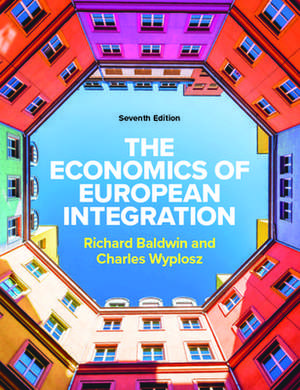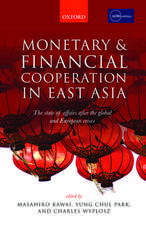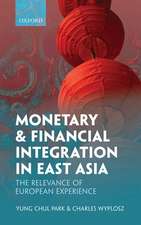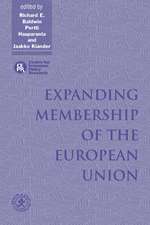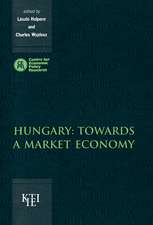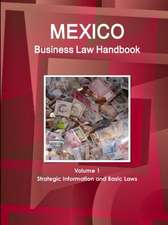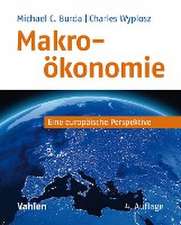The Economics of European Integration 7e
Autor Richard Baldwin, Charles Wyploszen Limba Engleză Paperback – 25 aug 2022
Key Features and Updates
•Wide range of learning features including boxed examples and illustrations, end of chapter summaries, self-assessment questions and essay questions.
•Fully updated to include new discussions and examples such as the new budget which has significant implications on European bonds, immigration, and climate change.
•Two new chapters highlighting the impact of both Brexit and Covid-19 on the EU.
•An Online Learning Centre with Lecture Outlines, PowerPoint Presentations, and an Image Library.
Richard Baldwin is Professor of International Economics at the Graduate Institute, Geneva, having been a visiting professor at Oxford and MIT. He is Editor-in-Chief and founder of VoxEU.org since 2007 and he advises governments around the world on globalisation and integration issues having served in the Bush (Sr) White House in 1990-91.
Charles Wyplosz is Professor Emeritus of International Economics at the Graduate Institute in Geneva where he also served as Director of the International Centre for Money and Banking Studies. He is a Fellow of CEPR and of the European Economic Association, as well as a Founding Managing Editor of the Economic Policy journal.
Preț: 415.42 lei
Preț vechi: 451.54 lei
-8% Nou
Puncte Express: 623
Preț estimativ în valută:
79.49€ • 83.59$ • 65.68£
79.49€ • 83.59$ • 65.68£
Carte disponibilă
Livrare economică 27 martie-10 aprilie
Livrare express 12-18 martie pentru 45.79 lei
Preluare comenzi: 021 569.72.76
Specificații
ISBN-13: 9781526849434
ISBN-10: 1526849437
Pagini: 400
Dimensiuni: 189 x 245 x 20 mm
Greutate: 0.88 kg
Ediția:7
Editura: McGraw Hill Education
Colecția McGraw Hill / Europe, Middle East & Africa
Locul publicării:United Kingdom
ISBN-10: 1526849437
Pagini: 400
Dimensiuni: 189 x 245 x 20 mm
Greutate: 0.88 kg
Ediția:7
Editura: McGraw Hill Education
Colecția McGraw Hill / Europe, Middle East & Africa
Locul publicării:United Kingdom
Cuprins
Part 1: History, Facts and Institutions
History
Facts, Law and Institutions
Decision Making
Part 2: The Microeconomics of European Integration
4Essential microeconomic background
5Preferential liberalisation
6Scale economies and competition
7Growth
8Labour markets and migration
Part 3: EU Micro Policies
9Common Agricultural Policy
10Location effects and regional policy
11Competition policy and state aids
12EU trade and climate policy
Part 4: The Macroeconomics of Monetary Integration
13Essential macroeconomic tools
14Optimum currency areas
Part 5: EU Monetary and Fiscal Policies
15The European monetary union
16Fiscal policy and the Stability Pact
17The financial markets and the euro
18The Eurozone in crisis
Online Chapters
19Economics for Covid-19
20Brexit: Problems and Prospects
21The history of European monetary integration
History
Facts, Law and Institutions
Decision Making
Part 2: The Microeconomics of European Integration
4Essential microeconomic background
5Preferential liberalisation
6Scale economies and competition
7Growth
8Labour markets and migration
Part 3: EU Micro Policies
9Common Agricultural Policy
10Location effects and regional policy
11Competition policy and state aids
12EU trade and climate policy
Part 4: The Macroeconomics of Monetary Integration
13Essential macroeconomic tools
14Optimum currency areas
Part 5: EU Monetary and Fiscal Policies
15The European monetary union
16Fiscal policy and the Stability Pact
17The financial markets and the euro
18The Eurozone in crisis
Online Chapters
19Economics for Covid-19
20Brexit: Problems and Prospects
21The history of European monetary integration
